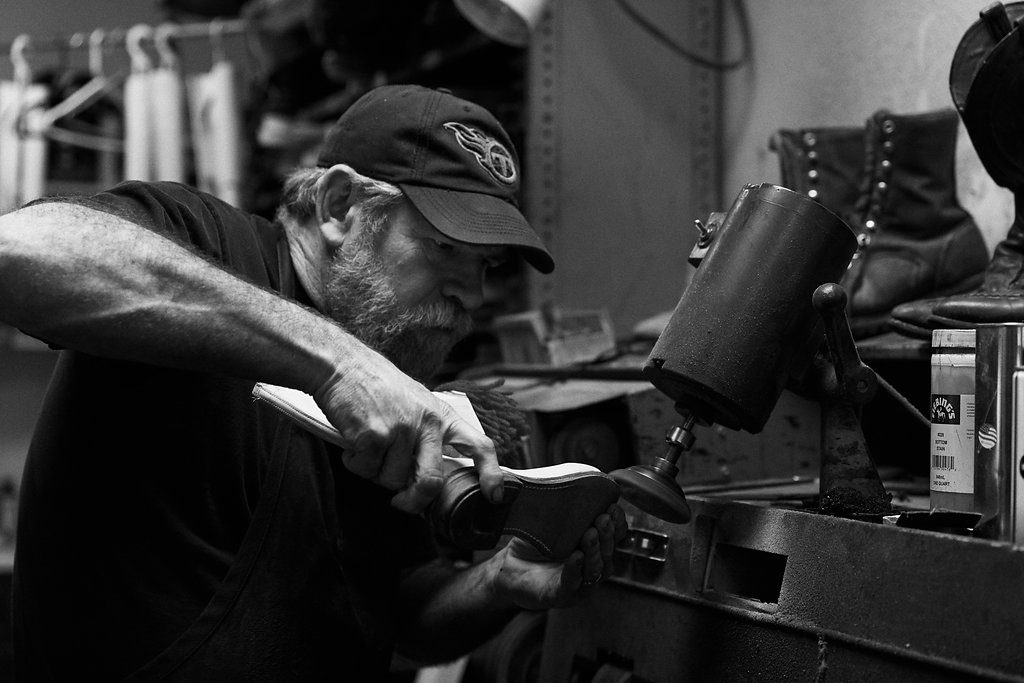
“I’m a fireman, basically. I go from person to person and put out fires.”
Troy Horner is really a cobbler and the owner of Peabody Shoe Repair in Berry Hill. But with the red-hot demand for shoe and leather goods repair—Peabody’s wait time is currently four weeks—perhaps fireman is a more apt job description.
I arrive at Peabody only a few minutes after they open. Tucked in a corner of a strip mall between a Mattress King and a children’s fabric store, Peabody doesn’t exactly look like the Nashville institution I’ve read about. It’s a far cry from the shop’s original Hillsboro Village location, but Peabody is busy as ever. When I walk in, there are already two women at the counter—one is picking up a pair of high heels, and the other is emptying a tote bag of flats and sandals onto the counter like she’s at a Coinstar machine.
Horner and I chat in the back corner of Peabody’s workshop. We sit at a small table blanketed in sole replacements, shoe stretchers, and Sole Factor catalogs. Horner flips through the pages, periodically turning them my way to show me styles and trends he’s keen on (he wants to add camouflage soles to his boots). He’s wearing a pair of black Wolverine 1000 Mile boots, Wrangler jeans, and a button-down with the sleeves rolled up. His hands are callous, his fingernails blackened, and his forearms peppered with small scars.
Horner is almost fifty-five years old. He has a big white beard and a smile that transforms his face from stern to warm in an instant.
“I remember coming into my interview, I was reading up online about some gruff man, and I was worried,” explains Katie Perry, who has worked at Peabody for a little over a year. “But I had a pretty good rapport with him as a customer, and it turns out it’s just an outer shell.”
“When I tell my friends I work at Peabody,” explains Bekah Cope, “they ask, ‘Is that mean old man still working there?’” Cope has been at Peabody full-time since the new year.
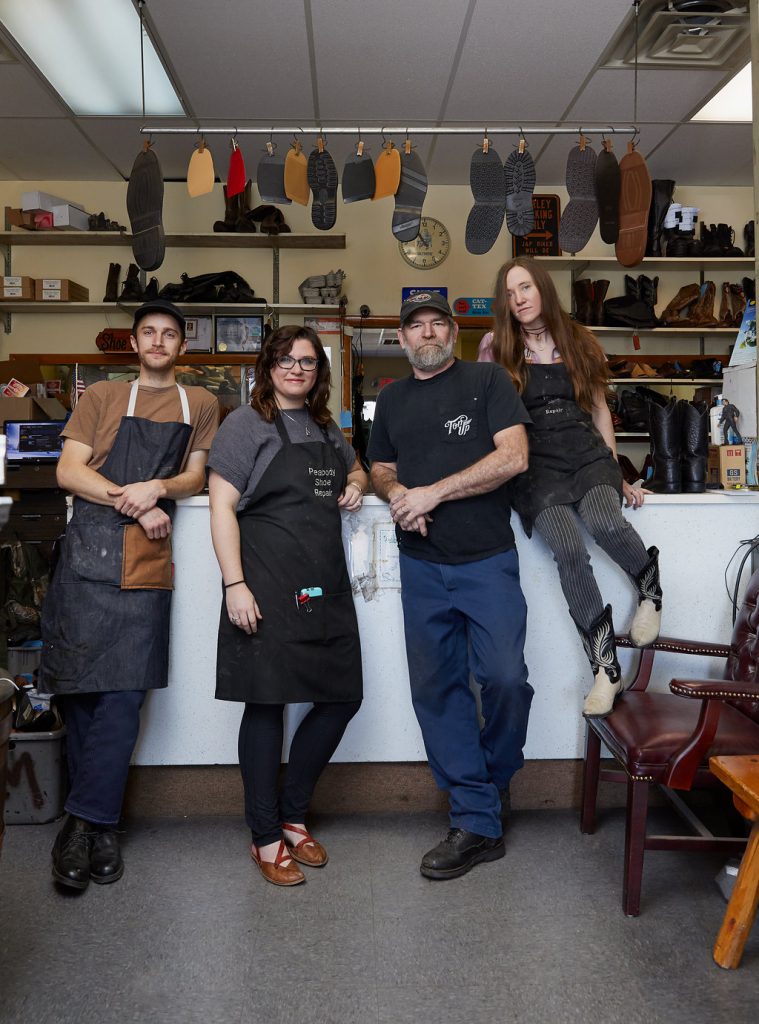
Horner says he tries a bit harder to be nice to customers than he used to. “When I was here by myself, I used to be a little angry. I’m better now.”
Nevertheless, customers at Peabody usually only get upset with one of two things—the wait time, or Horner’s forthright assessment of the products they bring in. A quick search on Yelp reveals as much. Despite the high ratings—four to five stars on Yelp, Google, and Facebook—one review in particular stands out: a one-star in October of last year involving a creased pair of Louboutin heels.
“Louboutins?” Perry says. “Horrible. Those are waxed cotton with cardboard inside.” Horner chuckles.
“That’s where I get a majority of my bad reviews—just telling people what their shoes are really made of. They’re like, ‘You’re an asshole.’ Okay, I’m an asshole,” he says with a smile.
Peabody has been in the Horner family since July 1976. Horner’s father bought it from the widow of the original owner so that his mother would “have something to do.” All these years later, Peabody is still thriving. Most cobbler shops didn’t have that same fortune. According to Horner, Nashville had about twenty-five shoe repair shops a couple decades ago. Now, he says, we’re down to about six.
The decline is due to a variety of factors, the rise in plastic or rubber-soled shoes chief among them. People are buying shoes that are not designed to be repaired. Because of that, Horner says they try to do everything that comes in the door—purses, baseball gloves, you name it.
“We do anything. I think that’s a problem with some of the shops around town that are not doing well,” Horner says. “They don’t do everything. We’ll do anything that comes through the door if we can.”
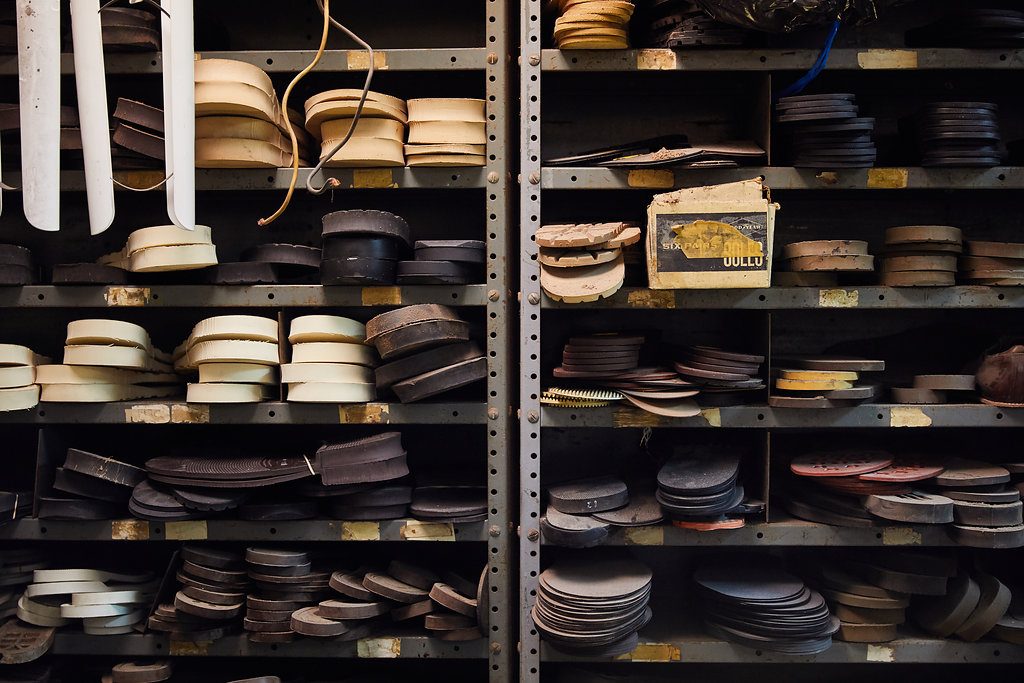
Horner attributes Peabody’s longevity to these special projects. He says other cobblers in Nashville will send the more renegade projects his way.
“We take on unorthodox jobs,” Perry interjects. She mentions a man who wanted his cowboy boots converted to Chelsea boots so they could fit under his skinny jeans. Peabody even makes sheaths for knives. “Some of our regulars know we like to get a little creative with things.”
Chock full of used boots, leather jackets, and bags, no shelf in Peabody is empty. There’s literally a barrel of refurbished baseball gloves in the front. Horner even sells his own polish, something he thinks they should do more of. But as you may have surmised, customer service is not an area where he flourishes. That’s where Perry comes in.
“She was a perfect fit,” Horner says.
“I started out as a customer. I was a die-hard Nisolo fan, and they sent me through his doors,” Perry says. “[Horner] did a special project for me—I had a dog get a hold of a shoe—and Troy made them into ballet flats instead of oxfords. That was one of those showcases of like, ‘Wow, that was really cool.’”
Since then, Perry has become addicted to the artistic side of cobbling. When I ask the room what makes a good cobbler, she quickly answers, “Creativity—being able to envision something that isn’t there yet.” Like anyone passionate about their work (and any good salesperson), Perry carries her job with her. She often notices women in line at coffee shops with damaged heels or decaying purses and refers them to Peabody.
“I think there’s a lot more that we’re able to do than the general population knows,” Perry explains. “For example, if you’re a shorter woman and your purse strap is too long, we can fix that for you. That’s a really simple thing we can do that really transforms how put-together you look.”
Perry is part of a wave of younger people who are purchasing better shoes. Horner says after the crash of 2008, he noticed people began buying footwear that could be repaired, and since then, more and more people have come through Peabody’s doors.
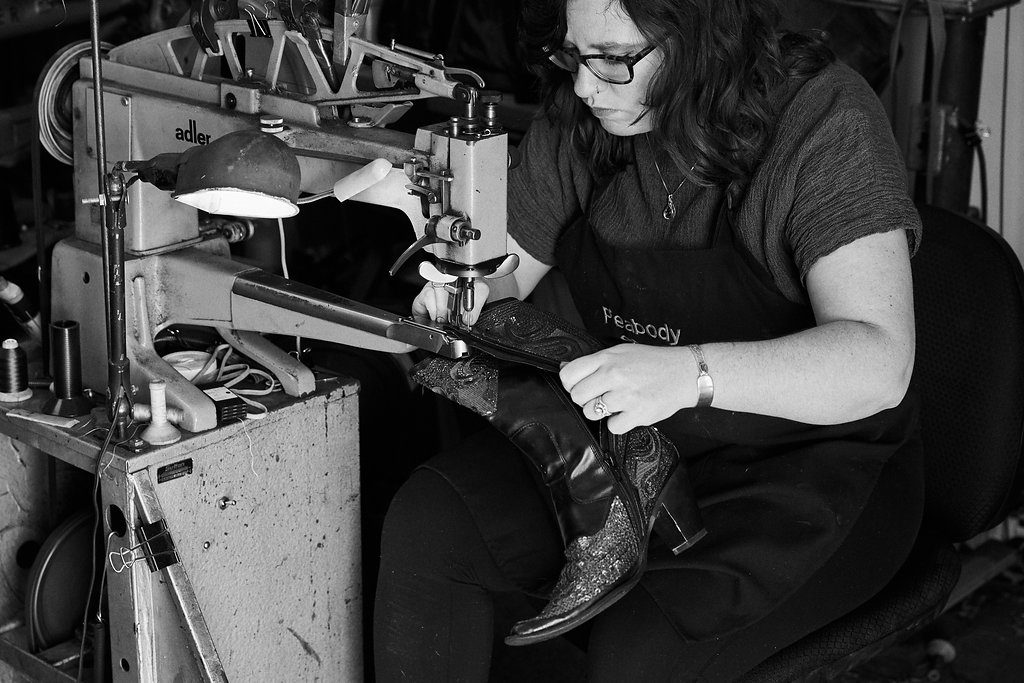
Even as boots become more popular—particularly in Nashville—Horner is not confident that the dozens of closed repair shops will sprout back up. He says opening a shop without used equipment can cost about half a million dollars. Gesturing toward the various machines surrounding us, Horner explains that he was blessed to be able to buy many of them from cobblers that went out of business. Even so, some of the machines ran him $60,000.
I ask Horner, who has children of his own, if he plans to keep Peabody in the family once he retires.
“I made sure that my kids went to college and had their educations,” Horner says. “Because [shoe repair] was a decent living, but it wasn’t college money. But now, today, it kinda is. I made sure my kids had something to do, but now I wish I had worked them more toward it. But I have grandkids, so we’ll see.”
The good news is that Horner has full confidence in his understudies. “Any single one of them could open their own shop in four or five years,” he says. “They’re like my kids.”
Because the pool of of available Nashville cobblers is exceedingly low, Horner will most likely pass his business down to someone he knows.
“You can’t hire a shoe repairman,” Horner says. “They don’t teach it anymore. They used to teach it in jails, but they stopped all that. You can’t go to college and say, ‘Hey, I want to be a shoe repairman.’”
Horner pauses, looks around the shop. The bell on the front door rings, and Perry makes her way to the counter to greet a customer. Cope wails on a heeled boot with a hammer. “You gotta train your own.”
Peabody Shoe Repair is open Monday through Friday 9 a.m. to 5:30 p.m., and Saturday 10 a.m. to 2 p.m.
Suggested Content
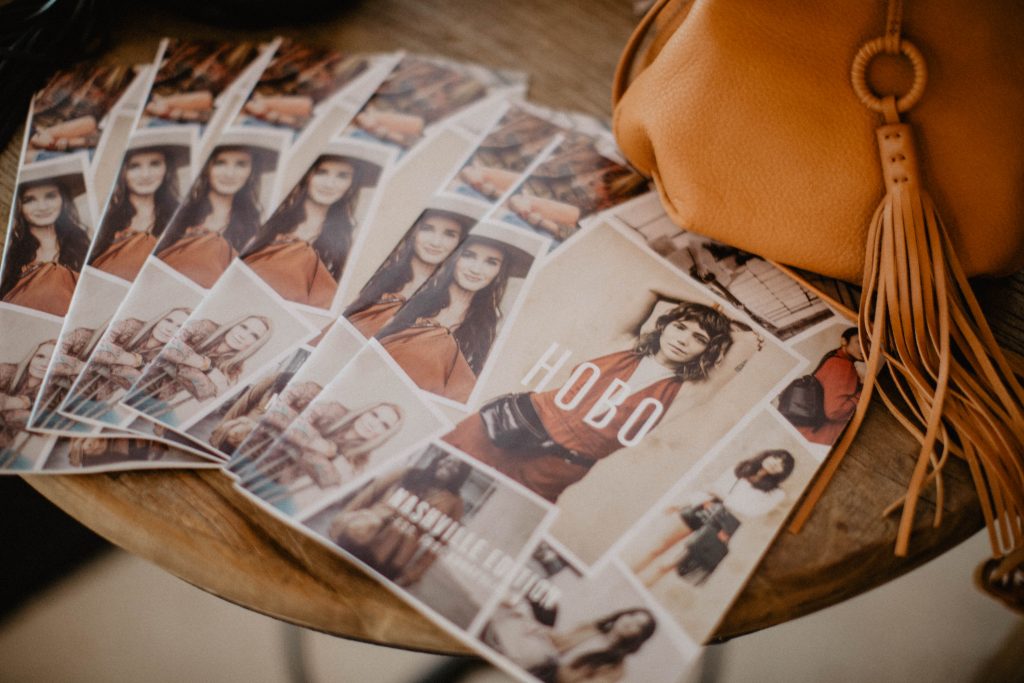
PHOTO RECAP: Hobo Leather Lounge
Last week we went to the Hobo Leather Lounge at White's Mercantile on 12th South. Here's what we saw.


